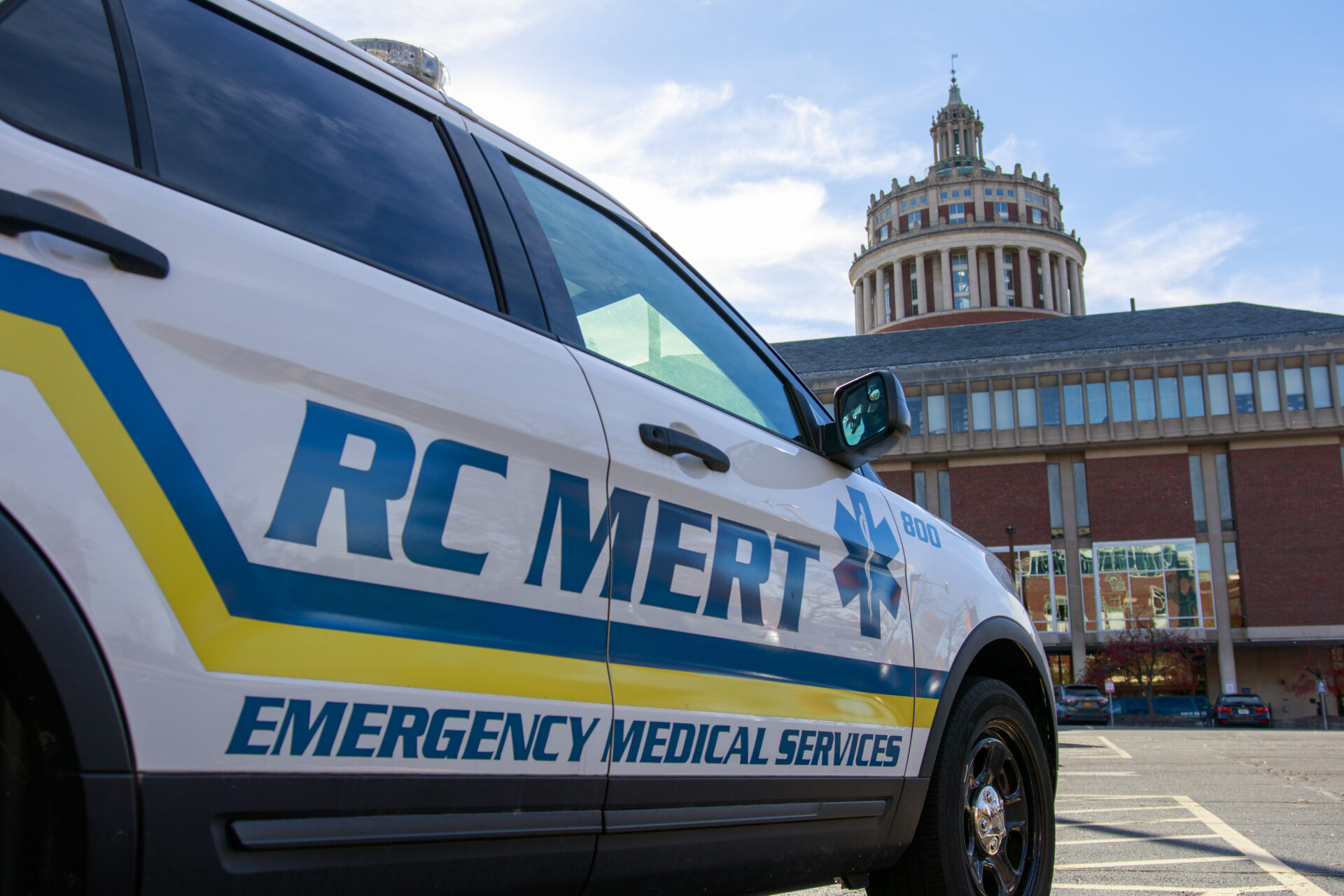Like many University of Rochester students, Micah Bettenhausen ‘25 has a STEM-heavy schedule and plans on going to medical school. However, unlike many of his fellow students, he’s been able to immerse himself further in the medical world and gain valuable real-world experience as an Emergency Medical Technician (EMT) by joining the River Campus Medical Emergency Response Team (RC MERT) and volunteering at Penfield Volunteer Emergency Ambulance (PVEA).
Bettenhausen, a Chicagoland native, has dreamt of becoming a doctor, specifically a neurodevelopmental pediatric psychiatrist, for a long time. He had a breakthrough with his neurodevelopmental specialist when he was younger, finally having a doctor who truly understood his experiences. One day, he’d like to be that doctor for other children who grew up like him, and is now pursuing a B.A. in psychology on the pre-med advising track.
He’d heard of MERT before, but only happened upon one of their general interest meetings by accident when they came into the room he was in looking for a chair to borrow. MERT was exactly what he’d been looking for on campus; a way to help other students in a more meaningful way than he may have been able to otherwise. MERT has provided free and confidential emergency medical assistance to the River Campus community since 1972, albeit with a pause between August 2021 through October 2022.
The MERT application process was rigorous with a written application and interview, but he made it through and began his EMT training with the other new recruits not too far into his sophomore year. By the end of the spring semester, he passed the official New York State EMT written and practical exams and became a certified New York State EMT, ready to join MERT as a certified EMT on shifts.
Everyone on MERT starts out as what they call an “803.” 803s (Medical Assistants) are in charge of taking vitals on calls and recording times, while 802s (Crew Chief Trainees – the next level up) can provide more care. 801s are the Crew Chiefs, leading the shifts. As an 803, Bettenhausen was on roughly one shift per month, but as he’s now ranked up to an 802, he is on shift roughly twice per month.
MERT members who wish to rank up faster can choose to accrue hours at an outside agency, which is why Bettenhausen began volunteering at PVEA. “Getting outside experience does really help me with my ability to recognize calls better and understand what I need to do better in these more hectic scenarios outside the relatively calm River Campus environment,” Bettenhausen said. As a trainee, he’s only required to volunteer for 16 hours per month, but chooses to stay for the entire 12 hour shift each time instead of 8 to make sure he gets the full experience. Eventually, he hopes to rank up to become an 801 and be a crew chief on shift with MERT.
When asked if what he’s learned in his pre-med courses has helped him as an EMT noted it’s actually the other way around; “The things I’ve learned as an EMT have helped me in class. What we learn in class is more at the molecular and cellular level and so you don’t really get as much of an understanding of how that relates to the real world.” Now, his EMT knowledge gives him a better insight into real-world applications of class concepts.
Trying to live in the moment, Bettenhausen is focusing on wrapping up his current studies, with a philosophy of science minor and chemistry and reason cluster in addition to his major and pre-med classes. He plans on taking a gap year to pursue a post-bac program, gain research experience, and then apply for medical schools.
Photo by Sarah Woodams

